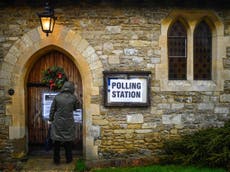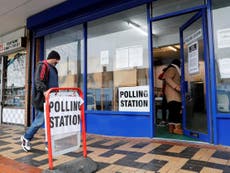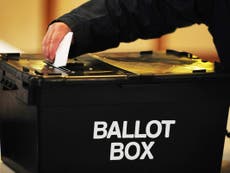The Tories’ dangerous exaggeration of voter fraud comes straight from the Republican Party playbook
Ministers have received multiple warnings that mandatory Voter ID – if rolled out nationally - could pull up the drawbridge for millions of voters


Centuries of democratic practice in this country could be about to change with the adoption of one of the most backward and suppressive aspects of US voting law.
This week, the leader of the House, Jacob Rees-Mogg, justified mandatory Voter ID plans, citing the existence of a million fraudulent "ghost" voters on UK electoral registers. This comes as the prime minister, Boris Johnson, and foreign secretary, Dominic Raab, refused to condemn Donald Trump’s baseless voter fraud allegations in the US presidential election.
While many dismiss Trump’s barrage of lawsuits over voter fraud, these allegations could have serious implications for eroding trust in democratic institutions. We know that Trump’s misleading claims of electoral fraud have gone viral on social media, despite efforts by platforms to clamp down on misinformation.
These tactics are an important tool for elements of the Republican Party in their continued attempts to discredit Joe Biden’s election victory. More concerning, however, is the exaggeration of voter fraud, with which the Republican Party seeks to justify stringent Voter ID laws that have systematically prevented millions of Americans from voting.
Now, the UK government has made it their top electoral policy priority to imitate Voter ID plans in order to ostensibly combat voter fraud. In reality, these laws offer a solution without a problem.
Voter impersonation is incredibly rare. In 2019, a year with a high turnout general election, the UK saw just one conviction for impersonation out of over 59 million votes. Indeed, with a rate of less than 0.0009 per cent in the US, it seems neither country has a serious problem with voter impersonation at polling stations.
Yet, ministers continue to regurgitate the same justification for Voter ID as a method to reduce the risk of voter fraud and improve the integrity of the electoral process. But the Tories cannot claim to be oblivious to the concerns about the implementation Voter ID; Ministers have received multiple warnings from charities, civil society figures and Black, Asian and minority ethnic organisations that mandatory Voter ID – if rolled out nationally - could pull up the drawbridge for millions of voters.
We can look to the Windrush scandal as a recent example of the struggle faced by some communities to provide official documentation, with many being told they were living in the UK illegally despite living and working here for decades.
Only this week, the Joint Committee on Human Rights called for the government to address a democratic "gap" as one in four black people are not registered to vote in Britain – compared with a 17 per cent average across the public at large.
It is no accident that civil rights groups across America have been fighting tirelessly to overturn these suppressive laws. Stacey Abrams, voting rights activist and founder of anti-voter suppression organisation Fair Fight 2020, has exposed the systematic denial of voting rights to black communities across the US.
Abrams explains that these insidious laws are said to be “race neutral” but “sound intentionally benign to lull us into ignoring them.” In reality “it has a disproportionate effect on the communities that have long been marginalised.”
Cat Smith is shadow minister for voter engagement and young people. She is also Labour MP for Lancaster and Fleetwood






Join our commenting forum
Join thought-provoking conversations, follow other Independent readers and see their replies
Comments